Search
Remove Ads
Advertisement
Summary 
Loading AI-generated summary based on World History Encyclopedia articles ...
Search Results
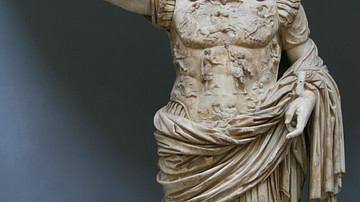
Article
Augustus' Political, Social, & Moral Reforms
Augustus is well known for being the first Emperor of Rome, but even more than that, for being a self-proclaimed “Restorer of the Republic.” He believed in ancestral values such as monogamy, chastity, and piety (virtue). Thus, he introduced...
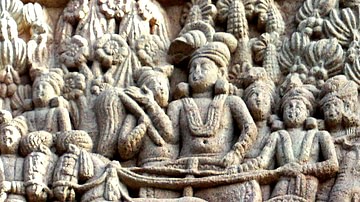
Article
Social, Political & Economic Landscapes in Kautilya's Arthashastra
The Arthashastra (or Arthaśāstra) is one of the oldest surviving treatises on statecraft. There is considerable debate about the dating and authorship of the text; it underwent compilation, recension, and redaction several times over the...
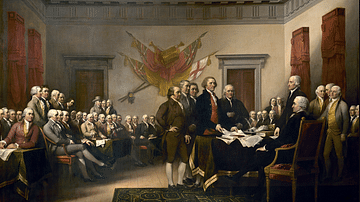
Definition
Social Contract
The social contract is an idea in philosophy that at some real or hypothetical point in the past, humans left the state of nature to join together and form societies by mutually agreeing which rights they would enjoy and how they would be...

Definition
Social War
The Social War (also called the Marsi War or the War of the Allies) of 91-87 BCE was the result of decades of contention between Rome and its Italian allies. Roman warfare relied heavily on the Italian allies (socii), but the Roman Republic...
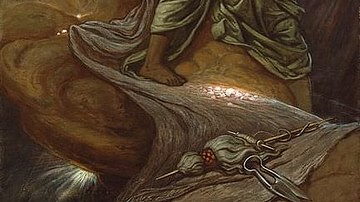
Article
Hercules and Alcestis: Personal Excellence & Social Duty
For the ancient Greeks, the quality of arete (personal excellence) and the concept of eusebia (social duty) were most important. Aristotle discusses both of these at length in his Nichomachean Ethics and relates arete to eudaimonia - translated...
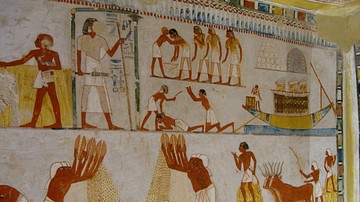
Article
Social Structure in Ancient Egypt
The society of ancient Egypt was strictly divided into a hierarchy with the king at the top and then his vizier, the members of his court, priests and scribes, regional governors (eventually called 'nomarchs'), the generals of the military...
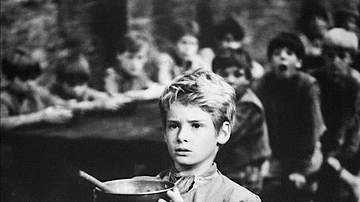
Article
Social Change in the British Industrial Revolution
The British Industrial Revolution (1760-1840) witnessed a great number of technical innovations, such as steam-powered machines, which resulted in new working practices, which in turn brought many social changes. More women and children worked...

Definition
Athens
Athens, Greece, with its famous Acropolis, has come to symbolize the whole of the country in the popular imagination, and not without cause. It not only has its iconic ruins and the famous port of Piraeus but, thanks to ancient writers, its...

Article
Vikings: Jewelry, Weapons & Social Change at The VIKINGR Exhibition
In April 2019, The Museum of Cultural History in Oslo, Norway, opened its doors to the new exhibition VÍKINGR, containing rich treasures and unique archaeological finds from the Viking Age (c. 750-1050). The Viking Age is considered Norway's...

Article
The Delian League, Part 6: The Decelean War and the Fall of Athens (413/2-404/3 BCE)
This text is part of an article series on the Delian League. The sixth and last phase of the Delian League begins with the Decelean War, also referred to as the Ionian War, and ends with the surrender of Athens (413/2 – 404/3 BCE). The final...